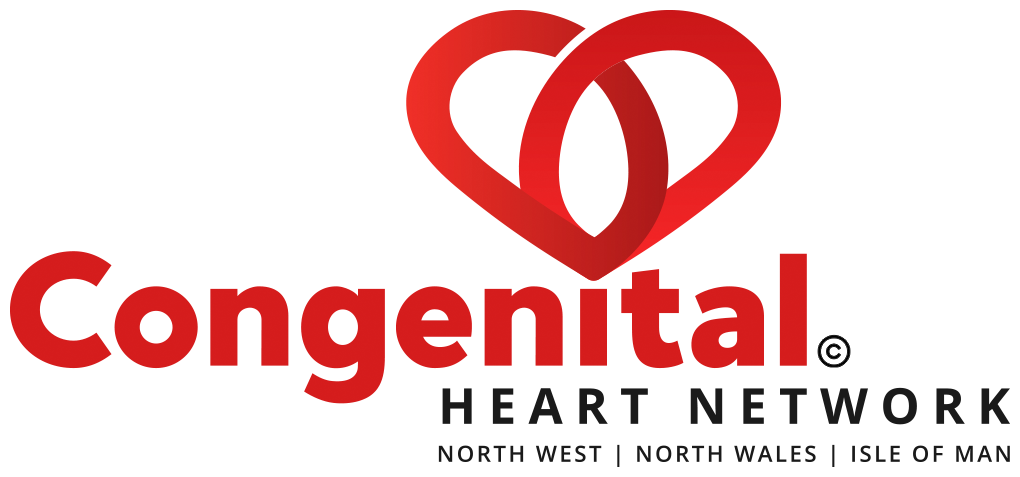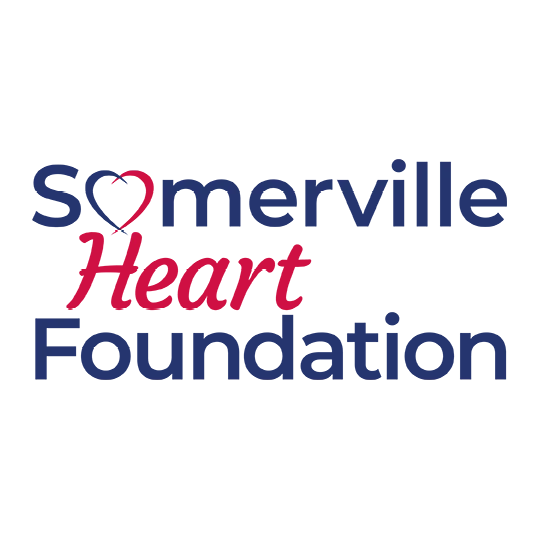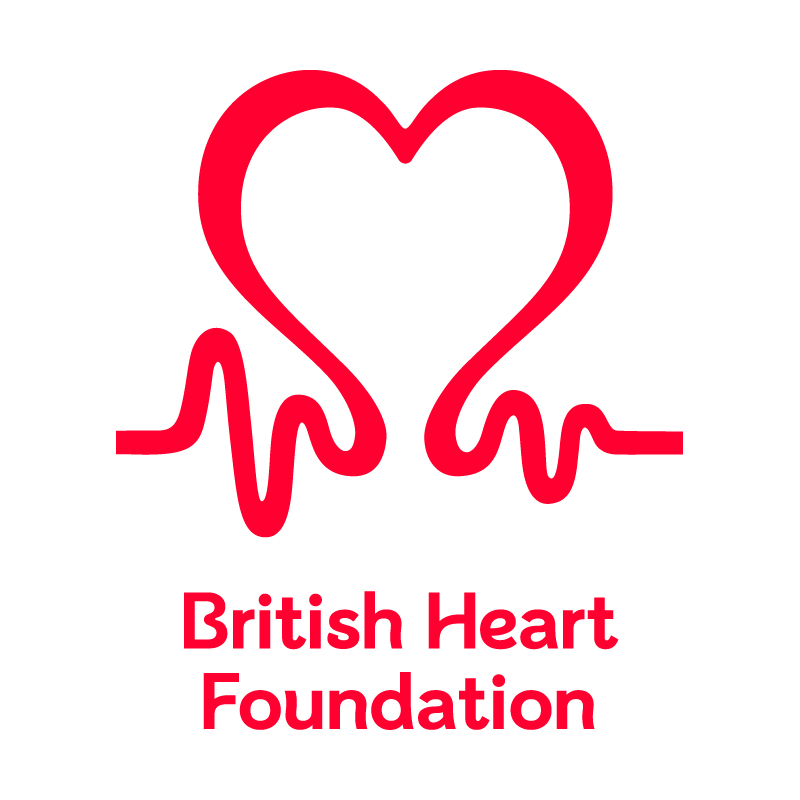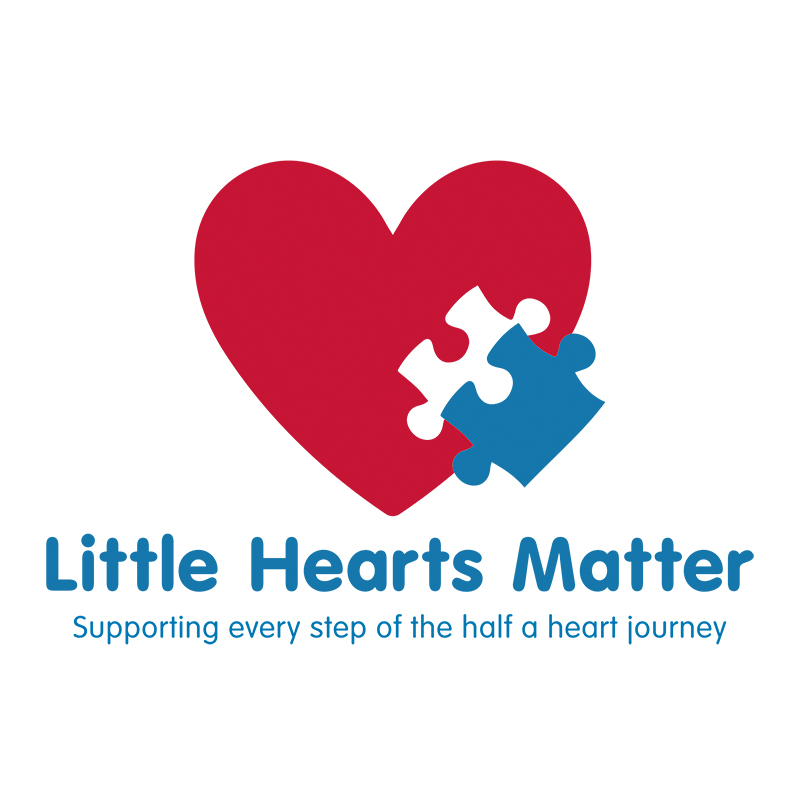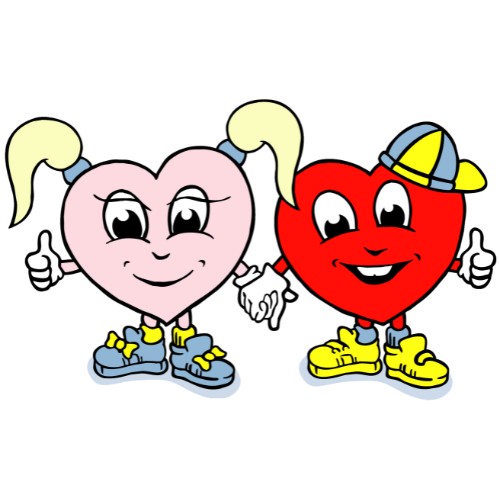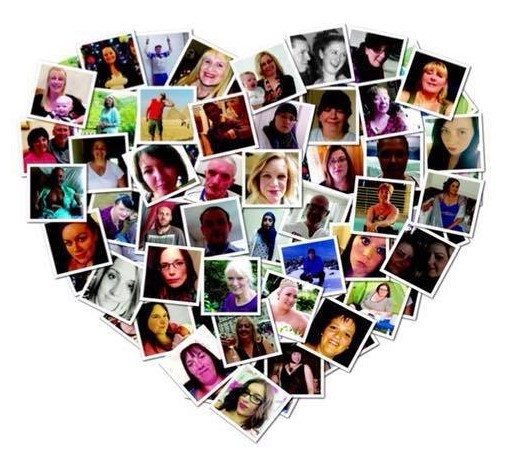How do we look after adults who have been born with a heart problem?
Most children born with a heart problem now survive to become an adult. Whether you have known about your heart problem all your life or have only just found out about it, we hope you will find this information helpful.
What is a congenital heart problem?
Congenital heart disease can range from very simple defects that may not cause a problem (such as small holes in the heart) to very serious defects that may be life threatening. Heart conditions vary in severity and need to be cared for on an individual basis.
Adult Congenital Heart Disease is referred to as ‘ACHD’ and affects about 4 in every 1000 adults and most people will require lifelong care. In the North West of England, North Wales and the Isle of Man we have a network of hospitals that provide care for adults with congenital heart disease. We are committed to making sure that wherever care is provided, that it meets NHS England standards and that the care you receive is always excellent.


What is a congenital heart problem?
Congenital heart disease refers to any problem with the heart that develops before a baby is born and results in abnormal ‘plumbing’.
Congenital heart disease can range from very simple defects that may not cause a problem (such as small holes in the heart) to very serious defects that may be life threatening. Heart conditions vary in severity and need to be cared for on an individual basis.
Adult Congenital Heart Disease is referred to as ‘ACHD’ and affects about 4 in every 1000 adults and most people will require lifelong care. In the North West of England, North Wales and the Isle of Man we have a network of hospitals that provide care for adults with congenital heart disease. We are committed to making sure that wherever care is provided, that it meets NHS England standards and that the care you receive is always excellent.
How do patients enter ACHD care?
- I have known about my heart problem since I was a child
As a child, you will have been cared for by the children’s heart team. Between 16 -18 years of age, your care will be transferred to the ACHD service. You will be provided with help and support during this time to help you understand all about your heart problem.
Click here to see how we support teenagers. - I found out about my heart problem by chance as an adult
Sometimes a heart problem may be found for the first time as an adult. You may be having some tests and they realise that you have a heart problem that you were born with. Sometimes a heart problem can be found during pregnancy or because you are having new symptoms. Your GP or the doctor looking after you will refer you to the ACHD Team to find out what the problem is and how best to treat it. - I have become very unwell recently, and found out that it is because I have a problem with my heart that I was born with
Sometimes you may become very unwell and need urgent treatment. You may need to attend an accident and emergency department. If the doctors think you might have a heart problem that you were born with, they can contact the specialist ACHD team for advice. There is a specialist heart doctor on call 24 hours a day to deal with emergencies.
I think I might have been lost to follow up?
Services for children born with a heart problem have been available in the North West of England since the 1960’s. In the early years of this pioneering work many children were discharged after their surgery to treat their heart problem. This was because they thought this was the right thing to do at the time and they didn’t have any specialist adult services to send them to. This is something that happened across all services both in the UK and abroad. We now know that most people that are born with a heart problem should in fact continue with life-long care. We now have dedicated specialist services for adults with congenital heart disease.
If you think that you have had a heart problem as a child but have not seen a heart doctor who specializes in congenital heart disease as an adult, speak to your GP about this. They can refer you to see a specialist heart doctor near to where you live. You can also call our ACHD helpline on 0151 252 3333 for individual advice.
How do patients enter ACHD care?
As a child, you will have been cared for by the children’s heart team. Between 16 -18 years of age, your care will be transferred to the ACHD service. You will be provided with help and support during this time to help you understand all about your heart problem. Click here to see how we support teenagers.
Sometimes a heart problem may be found for the first time as an adult. You may be having some tests and they realise that you have a heart problem that you were born with. Sometimes a heart problem can be found during pregnancy or because you are having new symptoms. Your GP or the doctor looking after you will refer you to the ACHD Team to find out what the problem is and how best to treat it.
Sometimes you may become very unwell and need urgent treatment. You may need to attend an accident and emergency department. If the doctors think you might have a heart problem that you were born with, they can contact the specialist ACHD team for advice. There is a specialist heart doctor on call 24 hours a day to deal with emergencies.
Services for children born with a heart problem have been available in the North West of England since the 1960’s. In the early years of this pioneering work many children were discharged after their surgery to treat their heart problem. This was because they thought this was the right thing to do at the time and they didn’t have any specialist adult services to send them to. This is something that happened across all services both in the UK and abroad. We now know that most people that are born with a heart problem should in fact continue with life-long care. We now have dedicated specialist services for adults with congenital heart disease.
If you think that you have had a heart problem as a child but have not seen a heart doctor who specializes in congenital heart disease as an adult, speak to your GP about this. They can refer you to see a specialist heart doctor near to where you live. You can also call our ACHD helpline on 0151 252 3333 for individual advice.
Which hospitals provide specialist care for adults with a heart problem they were born with?
In the North West of England, North Wales and the Isle of Man we have several hospitals that look after adults with congenital heart disease. We call this a Network. The adult congenital heart team are based at Liverpool Heart and Chest Hospital but travel to cover all of the other clinics in the North West. Sometimes they work alongside a local Consultant Cardiologist who has a special interest in ACHD.
Liverpool Heart and Chest Hospital
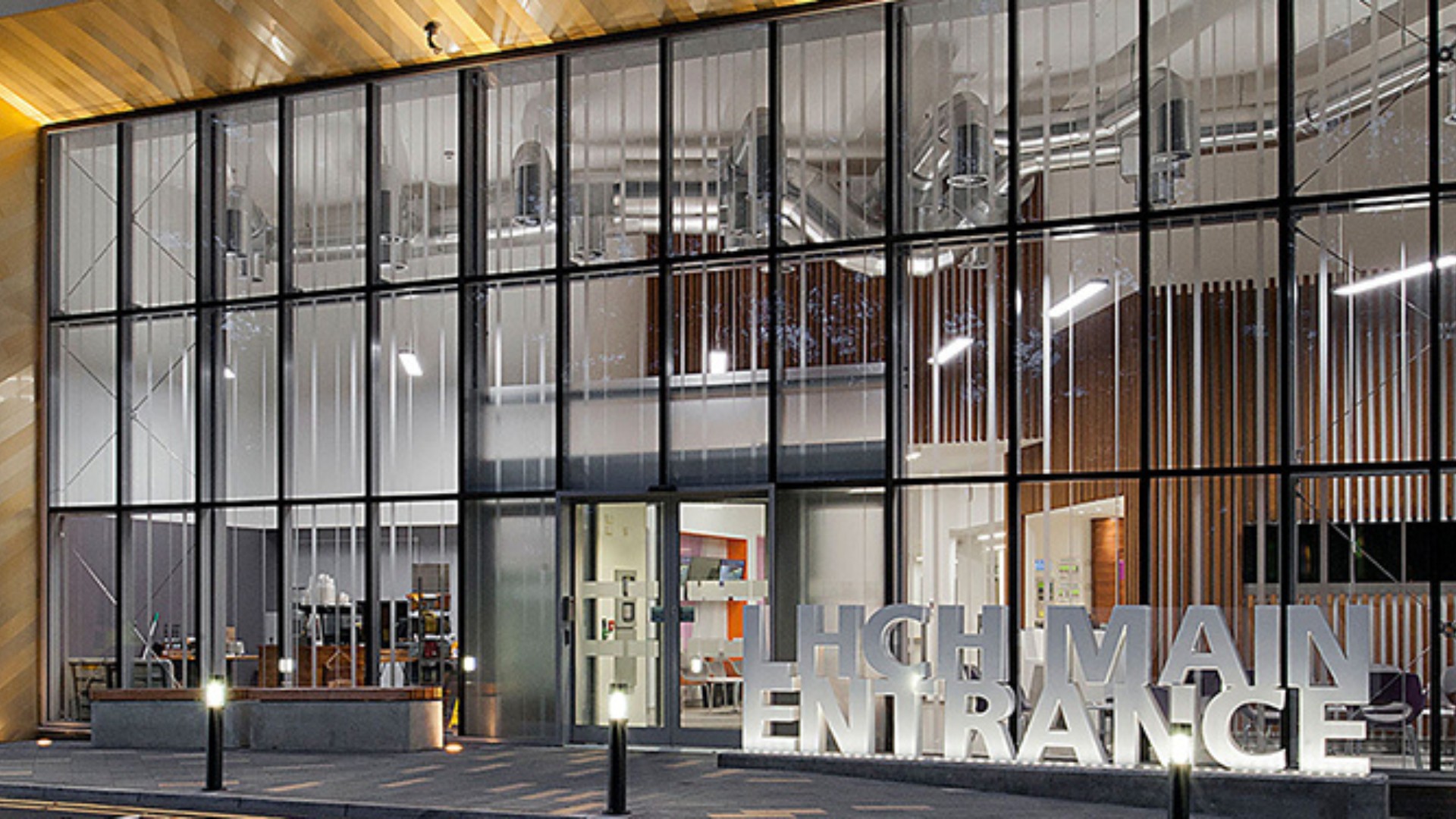
You will need to travel to Liverpool if you need an operation or a procedure to treat your congenital heart problem. You may also need to be treated there if you have a complex congenital heart problem and require a medical admission. All operations and procedures in patients with ACHD are performed here.
Find out more: Liverpool Heart and Chest Hospital | Congenital Heart Disease
Manchester Royal Infirmary
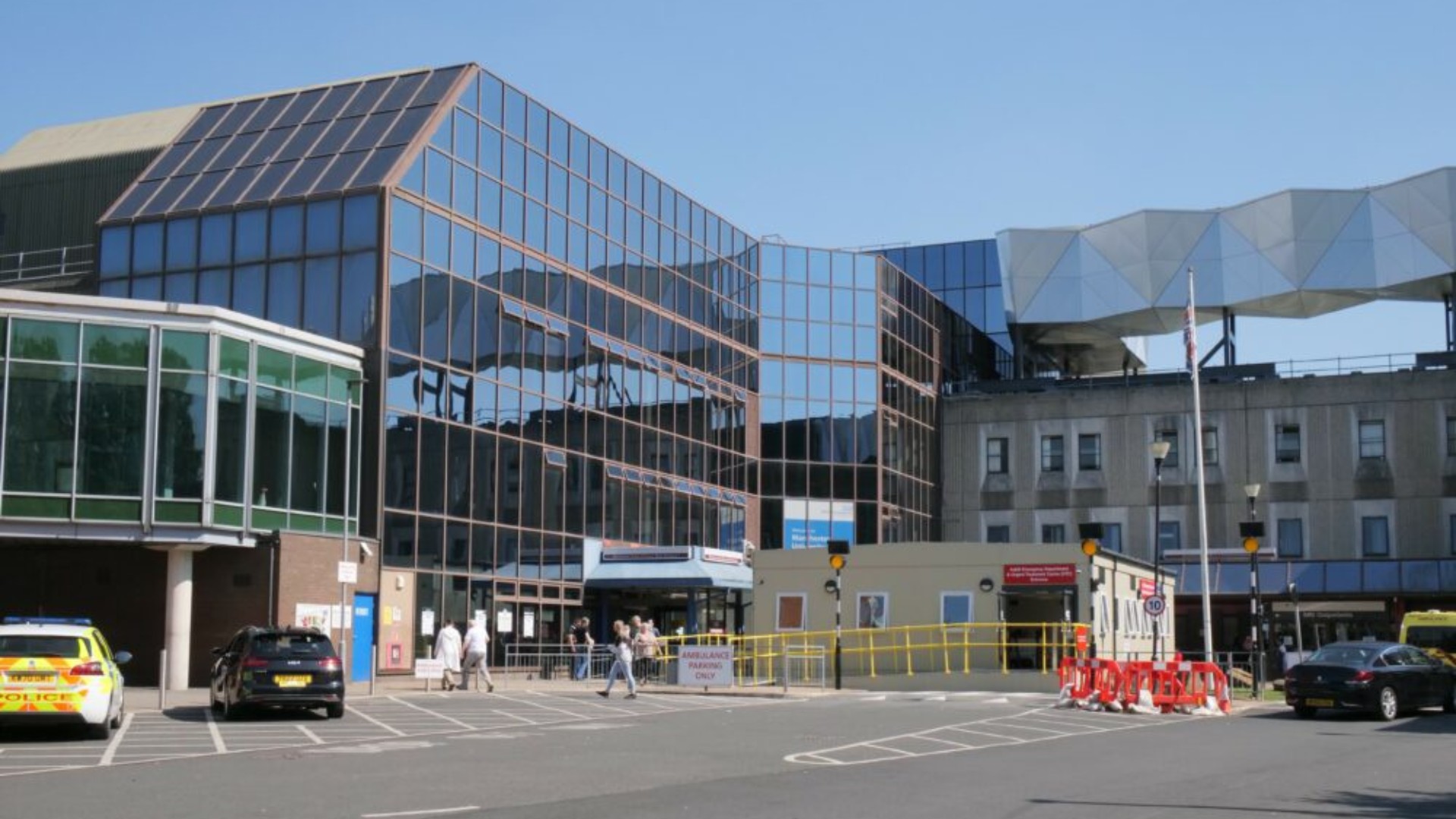
Provide outpatient care and investigations for people with congenital heart disease. They don’t perform operations or procedures but are able to provide 24/7 inpatient care for medical problems. They also provide specialist care for ACHD patients who have developed high blood pressure in the blood vessels in their lungs. This is called pulmonary hypertension.
Find out more: Manchester Royal Infirmary | Heart Disease Service
Peripheral Clinics

We also provide outpatient services closer to home at Wrexham Maelor Hospital in Wales, Blackpool Victoria Hospital and Wythenshawe Hospital.
See All Hospitals
Will I need any tests?
Your heart doctor will assess you and will decide if any tests are needed. Tests are used to monitor how you are doing and are used to help decide if you need any further treatment.
Echocardiogram (Echo)
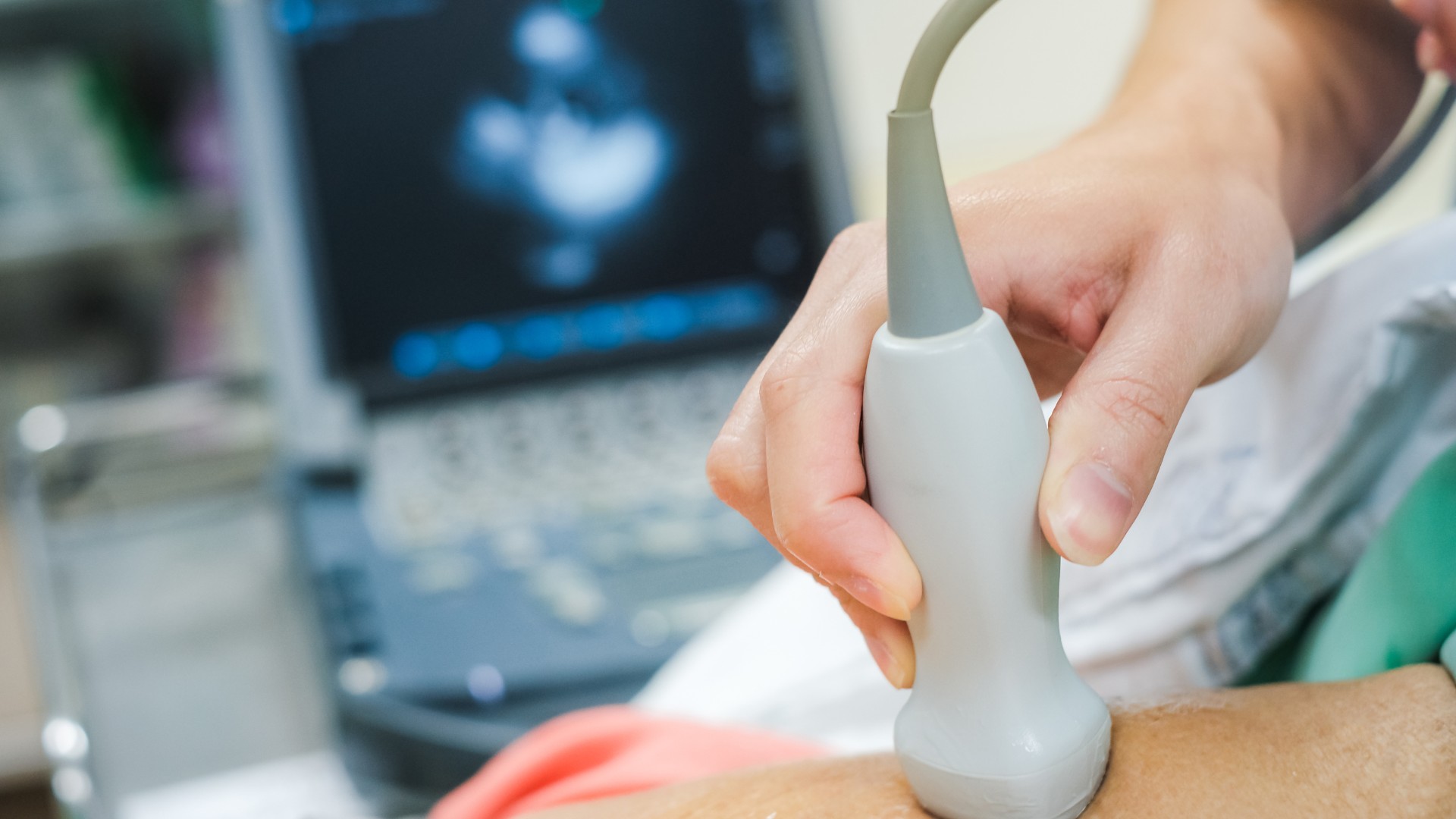
This is a test using an ultrasound machine to look at how the heart is pumping and to look at the heart valves and blood vessels. It is sometimes called an ‘echo’ and may be performed when you come to the clinic. Ultrasounds are painless. In order to get clear pictures we need to use a jelly on your skin, which you might find cold and sticky.
Electrocardiogram (ECG)
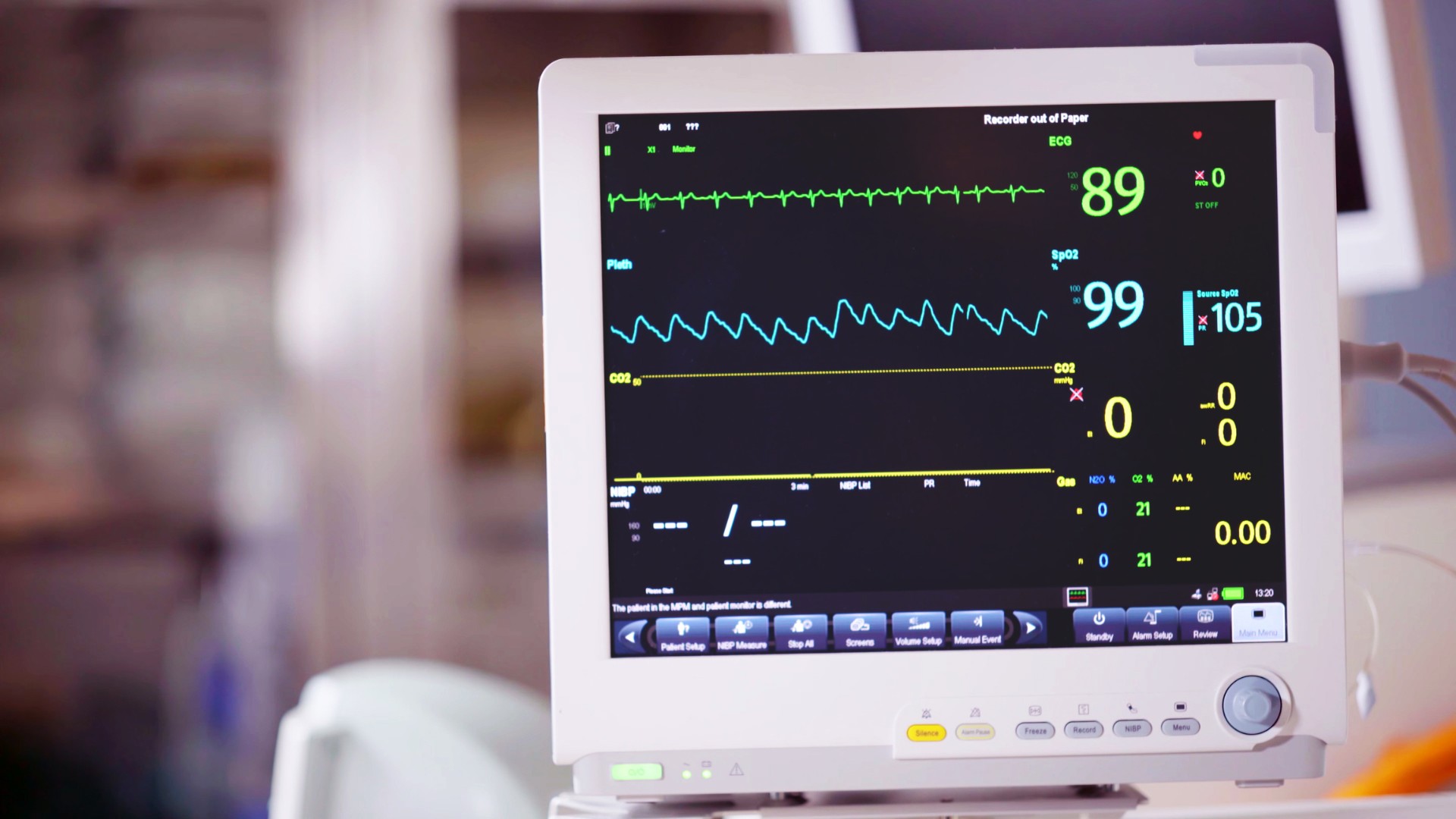
This involves attaching electrodes (special stickers) to the arms, legs and chest area. It records the electrical activity of the heart. This is often done each time you come to the clinic as well..
CT Scan
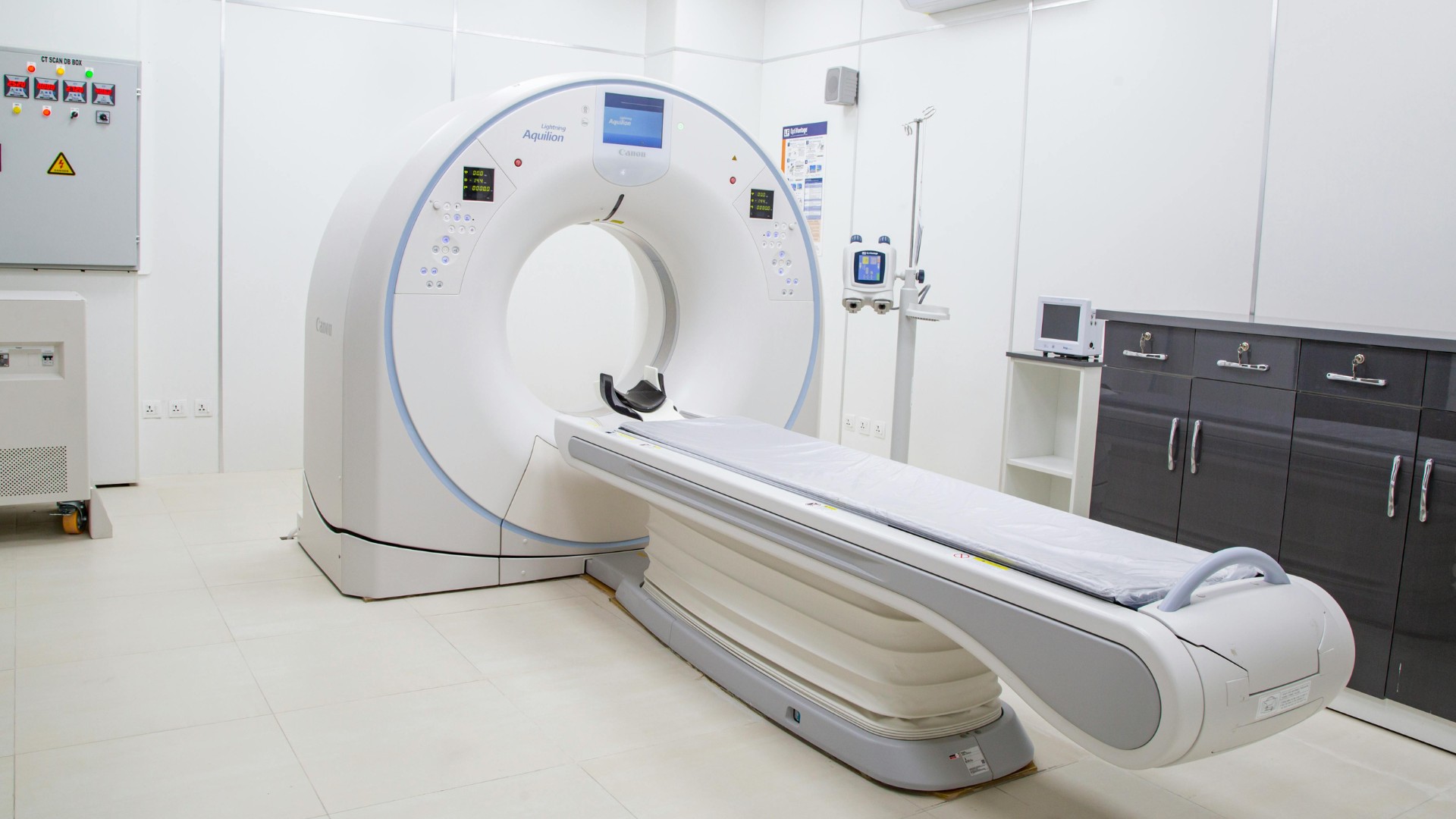
A CT scan uses X-ray beams to look at the heart and blood vessels. It is used when certain areas of the heart or blood vessels cannot be seen well on the echo scan. Sometimes, you may need an injection of a special dye that makes the images even clearer.
MRI Scan
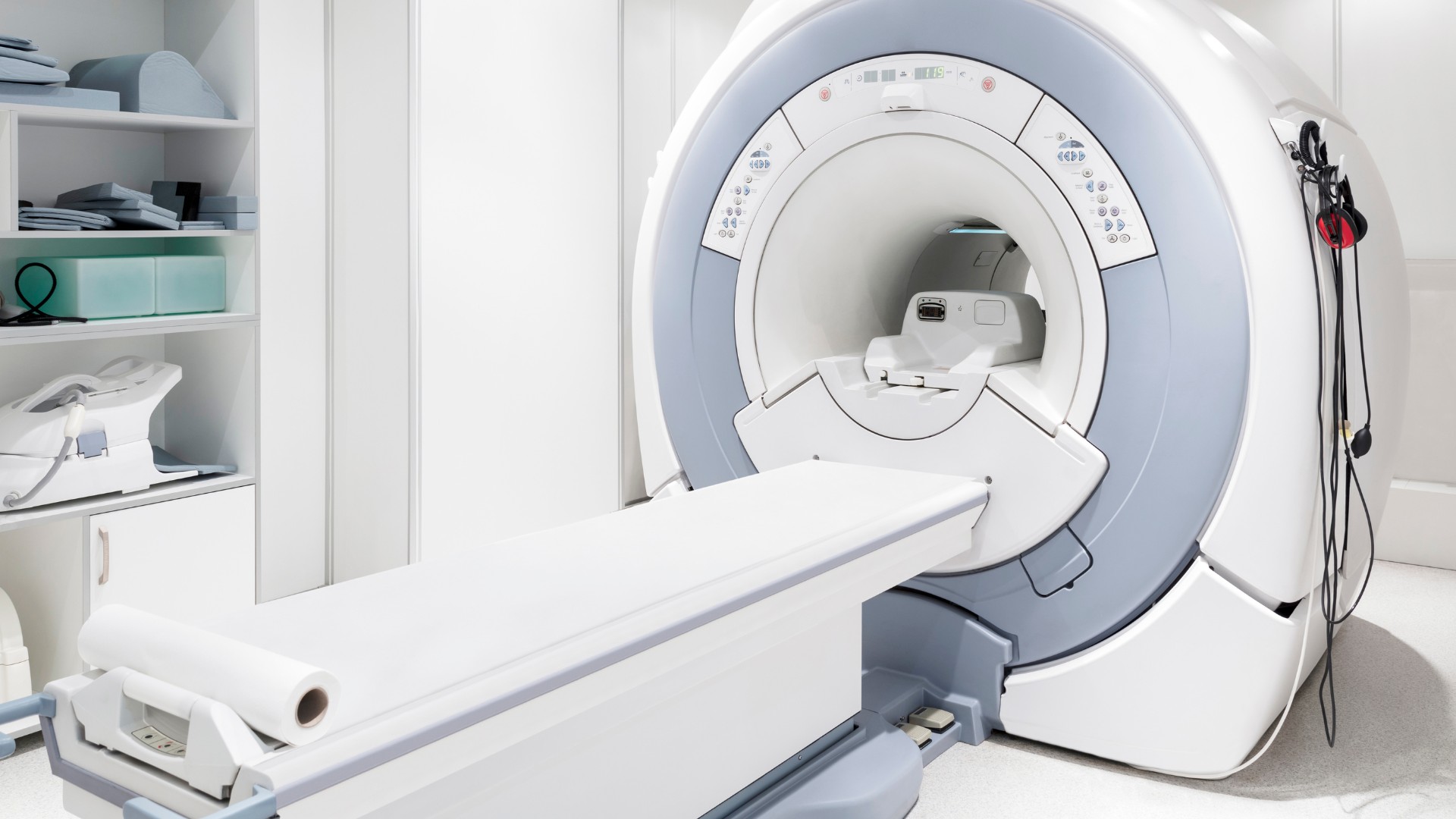
An MRI scan uses a strong magnetic field, so it’s important that you don’t have anything made from metal on you or in your pockets. An MRI scan takes longer than other scans, but you can listen to music to help you relax. It can make quite loud banging noises which is quite normal. You need to be able to lie still and you will be told to hold your breath for short periods of time during the scan.
What treatment is available for ACHD conditions?
The treatment for a congenital heart problem will depend on the type and severity of the condition. Most people find out about their heart problem when they are a child. Some heart problems can even be found before a baby is born. There are some people who find out about their heart problem for the first time as an adult.
Some simple heart problems don’t need any treatment and may not cause any problems at all. Many adults however, will have had an operation or a procedure as a child and will need lifelong care. The focus of ACHD care is to help you live a long and active life with your heart problem. You may need further treatment as an adult in order to keep your heart working well into the future.
Unfortunately, there are still some very complex heart problems that cannot be fixed back to a normal circulation. In cases of severe heart disease all options will be discussed with you including the option of referring you to transplant services or palliative care.
In severe cases of congenital heart disease parallel care is offered. This is where you are referred to the palliative care team whilst you are receiving active treatment for your heart problem. This is where everyone is hoping for the best outcome but also preparing for the possibility that you might not survive. The palliative care team are experts at supporting you at this very difficult time.
What treatment is available for ACHD conditions?
What happens next?
Routine follow up
If everything is stable and you are doing well your heart doctor may choose to review you in the clinic at regular intervals.See Coming To Clinic for more info.
You might need further tests
Your heart doctor may decide that more tests are needed to understand how the heart is working. This sometimes results in a decision to have a heart operation or procedure.
Decision to Treat
Once all the tests have been done your heart doctor may discuss your case at the multidisciplinary team meeting (MDT). This meeting is held every week with experts in congenital heart disease. They decide together what is the best way to treat you especially if you need an operation or a procedure.See Multidisciplinary Team Meeing for more info.
I have been discussed at MDT
What are the different decisions that may be made at MDT?
To treat medically
This means that the doctors do not think an operation, or a catheter procedure is needed at this time. They will continue to monitor you in the clinic. They may recommend adding to or changing your medication.
To have a heart operation
This means that you are being considered for a heart operation. You will receive an appointment to see a heart surgeon in the clinic to discuss the operation that is being planned.
You will also meet one of the Congenital Heart Nurse Specialists. They will see you in a pre-admission clinic and give you lots of practical information about having a heart operation and what to expect. You will be put on the waiting list for a heart operation at Liverpool Heart and Chest Hospital
Click here to find out more: What to expect following surgery inpatient information
To have a catheter procedure
This means that you need a catheter procedure (a keyhole procedure performed through the blood vessels in the groin). You will receive a letter informing you of what procedure is required. You will be seen in the clinic to talk to the doctor about the procedure. You will be invited to a pre-admission clinic where you will meet the congenital heart nurse specialist. They will help you understand what is being planned and what to expect. You will be put on a waiting list for this procedure at Liverpool Heart and Chest Hospital
Click here for more information.
Referral for complex heart failure management and transplant assessment
In some cases, there are no further treatments that can be offered to help fix the problem. You may be referred to a specialist heart function clinic to help manage your symptoms. Some people may also be referred to a transplant centre for assessment of your complex heart problems.
Who is available to help?
You will meet lots of different people over time who will help you. This team may consist of specialist ACHD doctors and surgeons, cardiac physiologists who perform your heart scans in the clinic and a psychologist who has dedicated time to see patients with ACHD (to name but a few!). In particular the adult congenital heart nurse specialists are experienced nurses who are trained in how to care for young people and adults with congenital heart disease. There is a team of ACHD Specialist Nurses based at both Liverpool Heart and Chest Hospital, Manchester Royal Infirmary and one nurse is based at Wrexham Maelor Hospital. They are available Monday to Friday for help and advice via a central helpline based in Liverpool. They can help you understand your heart condition, the medicines you need to take and are available to help with any problems or questions you may have. They can be contacted via the helpline number below:
Helpline
-
0151 254 3333
Monday to Friday 09:00- 17:00
There is one central helpline for all patients
This is an answer messaging service. Please leave a clear message explaining what you need help with and remember to leave your contact details so that the nurses can call you back. All of the calls are logged and you will receive a call back within a few days. You can call this number outside of those hours and on bank holidays if you are worried and need urgent advice. Please follow the instructions on the helpline as to how to do this. If the person you are speaking to thinks it is an emergency then they will instruct you to call NHS 111, attend A+E or dial 999 where appropriate.
The North West Adult Congenital Heart Support Group NWACH
The North West Adult Congenital Heart Support Group has a private Facebook group that is run by the ACHD specialist nurses. It is a safe place to meet other people living with congenital heart disease. To share stories and offer each other support. Regular updates are provided by the specialist ACHD team via remote meetings and Facebook live events.
To Join our support group click on the link:
Useful links
The Somerville Heart Foundation
Somerville Heart Foundation
Supporting young people and adults born with a heart condition
Tel: 0800 854759
Email: helpline@thesf.org.uk
British Heart Foundation
British Heart Foundation
National Support Group run by the British Heart Foundation for young peopleand adults growing up with congenital heart disease
Little Hearts Matter
Little Hearts Matter
Charity dedicated to supporting people with signle ventricle heart conditions
Tel: 0121 455 8982
Email: info@lhm.org.uk
https://www.lhm.org.uk/svh-adult-support/
Please click here for more charities that you may find helpful.
Click here to view our information leaflets.
Please take a look at our Patient and Public Voice Group page to see what they do and how to get involved.
How can I get involved?
Are you interested in helping to improve the care patients receive and in particular to improve the experiences of patients and their families? Please take a look at our Patient and Public Voice Group page to see what they do and how to get involved.
We are looking for people with lived experience who are passionate about making a difference and want to help improve healthcare services for children with heart problems and/or adults with congenital heart disease. If you would like to know more about these groups, or would like to join and have your say, please scan the QR code or click here to fill in the form and we will be in touch. Your voice matters, and we would love to hear from you!
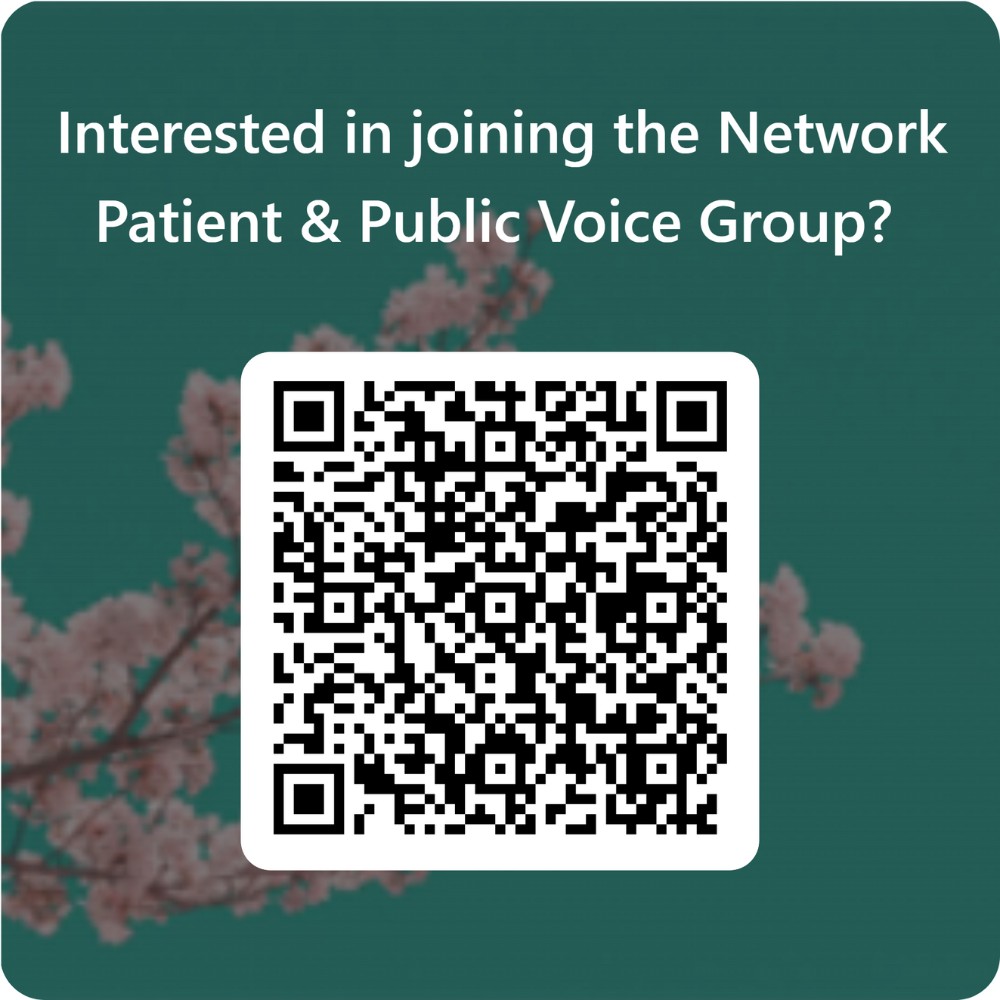
Somerville Heart Foundation
Supporting young people and adults born with a heart condition.
Tel: 0800 854759
Email: helpline@thesf.org.uk
British Heart Foundation
National Support Group run by the British Heart Foundation for young peopleand adults growing up with congenital heart disease.
Little Hearts Matter
Charity dedicated to supporting people with single ventricle heart conditions.
Tel: 0121 455 8982
Email: info@lhm.org.uk
Children’s Heart Association
A local charity supporting families, children and adults with congenital heart disease in the North West.
Tel: 01706 221988
Email: information@heartchild.info
